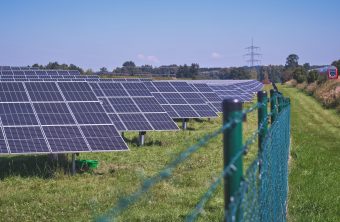
The long-awaited Law on Amendments to the Law on the Use of Renewable Energy Sources resolves the issue of numerous requests for the connection of new solar and wind power plants to the national power grid without jeopardizing the safety of the power system.
Rade Mrdak, Green Energy Adviser to the Minister of Mining and Energy, explains how the changes will help to reach the target of 1,000 MW for wind farms and 300 MW for solar farms over the next three years and whether households will now benefit more from the introduced limitations of power generated by solar plants.
What do the adopted amendments to the Law on the Use of Renewable Energy Sources bring us?
The new amendments to the Law on the Use of RES brought us the improvement of the regulatory framework in this area, while the amendments prescribed the rules that should solve the 20 GW requirements for connecting wind power plants and solar power plants to the national power grid. This capacity exceeds the total installed capacity of all power plants in Serbia by three times which have been built over decades. Without changes in the Law, system operators would be legally obligated to connect capacities that cannot be integrated into the system. It would cause severe financial and technical problems for our operators to ensure the system’s safe and reliable functioning. That’s why we envisioned the possibility that if the operator of the transmission system, in a transparent and public procedure and with the consent of the independent Republic of Serbia Energy Agency, assesses that there is no physically available capacity for the integration of RES power plants, they can temporarily implement the measure which postpones their connection. However, exceptions to this rule do not apply to operators who have already acquired certain rights in the connection procedure. There are about 5 GW of such projects, as well as those investors who do not want to postpone the connection but are ready to provide additional balancing capacity themselves or through another market participant. In practice, these additional capacities will be battery storage.
Other changes pertain to solving the issue of balancing responsibility for producers using RES. Now the guaranteed supplier will not assume the balance responsibility for all producers; only those who have received incentives and only temporary, i.e. until the intraday market comes to life, either through the domestic stock exchange or through the merger with the European single market. Commercial projects will have to resolve the balance liability commercially.
Finally, we made changes related to prosumers by limiting the maximum capacity for households and commercial customers in line with European practice. Prosumers are considered only those end customers who install solar panels up to 10.8 kW for households or up to 150 kW for other categories of end customers. In this way, we directed the prosumer concept towards small customers who should reap the benefits of this model. Big consumers need to be active buyers with greater responsibilities.
IN FOCUS:
- GREEN TRANSITION – AN OPPORTUNITY TO DEVELOP SUSTAINABLE ECOSYSTEMS
- URBAN BEEKEEPING REQUIRES LOCAL INITIATIVE
- APPLICATION OF ENVIRONMENTALLY FRIENDLY MATERIALS IN CONTEMPORARY ARCHITECTURE
Why did the draft amendments to the Law stipulate a limit for prosumers, and will this push ordinary citizens to abandon the prosumer concept?

The amendments to the Law on the Use of Renewable Energy Sources stipulate that the limit for prosumers is 10.8 kW, so with this solution, we have covered 97 per cent of households that mostly install solar panels of up to 10 kW power. The purpose of this limit is to help citizens balance the electricity production from solar panels with their consumption and to demotivate them to use electricity from the power grid, at a higher price, during winter for heating as this electricity is still mostly obtained from coal, which can negate the positive effects of the installation solar panels. We believe that citizens will not abandon the prosumer concept because the profitability of solar panels will continue to grow.
When will a by-law stipulating active buyer’s rights and obligations be adopted?
The Ministry of Mining and Energy is preparing amendments to the Law on Energy, including provisions for active buyers. We want to regulate this issue adequately and enable the industry to valorize all the benefits of self-supply through its production with the help of this new concept. If we adopt the amendments to the Law on Energy by the year-end as planned, we believe that by June 2024, we will have all by-laws ready to implement the active buyer concept.
Interviewed by: Milica Radičević
Read the story in the new issue of the Energy portal Magazine RENEWABLE ENERGY SOURCES



